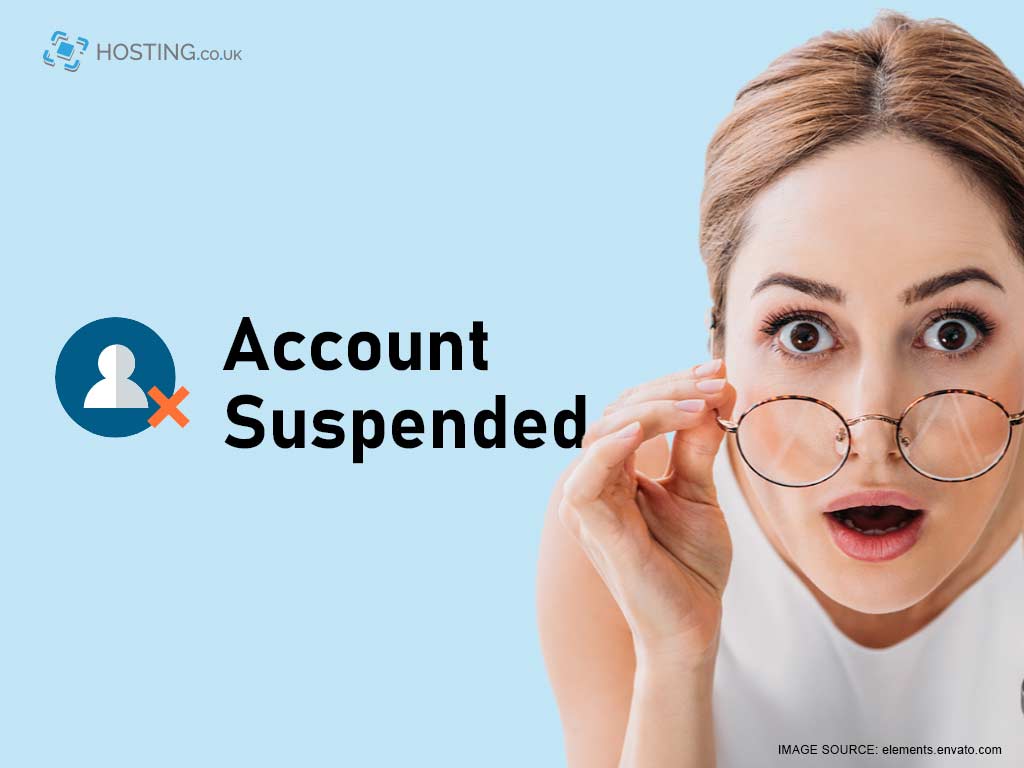You go to your ecommerce website one day to list a new T-shits you just bought, but you can’t get into your account. You try to change your password, but it doesn’t work. You are informed that your account has been suspended when you contact web hosting customer service. So, what’s the problem? We’ve outlined several causes of website account suspension and provided some advice on how to determine which one applies to you and how to resolve each.
Table of Contents
What is the most common reason for the suspension of a website account?
The most common cause is malware infection. Thousands of websites are infected with malware by hackers every day, and yours was most likely one of them. According to a Clark School study, a hacker attack occurs every 39 seconds. These can include everything from brute force attacks to the use of phishing pages to steal sensitive information like credit card numbers.
Other popular reasons for a website account suspension
A website account suspension usually indicates that the user’s access to their website account has been temporarily or permanently disabled.
Breach on the website’s terms of service: This could be because you violated the website’s terms and conditions by listing a T-shirt with a false price tag.
Suspicious behaviour: This could be because the website’s security system detected unusual activity on your account, raising the possibility of fraud or hacking.
Failure to pay fees: This could be because you forgot to renew your webhosting subscription or because you owe money.
Spamming: This could occur as a result of you sending unsolicited messages or posting irrelevant content on the website.
Restoring the functionality of your website

A suspended website is inconvenient and may harm the website’s reputation or business income. Even if it is for your own safety, discovering that your website is inaccessible to visitors can be a difficult pill to swallow. Hosts recognise the importance of getting a website back up and running as soon as possible, which is why they encourage site owners to use monitoring tools or website protection tools to scan for, alert on, and quarantine suspicious activity.
Security hosting services

As a website owner, it is your responsibility to ensure the security and upkeep of your website. The website host, on the other hand, is in charge of the security and maintenance of their servers. To put it another way, shared hosting providers are responsible, like apartment building superintendents, for ensuring that the building (server) is up to code and that the exterior fence locks (global firewalls). Websites are tenants in this high-speed building, and they are expected to keep intruders out by locking their own doors and windows.
Malware of various types can have a negative impact on the performance and security of a shared hosting server. sites have been taken offline as a precautionary measure to reduce the risks associated with them. This means that malware could infect other customers who use the same server as you. Malware can cause infected and non-infected sites to slow down or go offline if they share the same server resources. For these reasons, hosting providers conduct comprehensive malware scans on all websites hosted on their servers and notify site owners if their site is infected. As a precaution, hosting companies will take infected websites offline to reduce the risks associated with them.
While this may appear to be punishment for being hacked, it is actually done to protect both the site owner and the webhosting server. Suspending and deactivating your website account will also protect site visitors from being victimised in the event of a malicious attack.
As a result, suspending a website’s account ensures that no further harm is done while the infection is treated.
Look into how to repair your website
If your website is down, you can get more information by reading the web hosting terms of service or contacting the web hosting provider or the website’s customer support. Here are a few reasons and solutions to the most common problems.
- If you violated the website’s terms of service, you must correct the issue and wait for the suspension to be lifted.
- If the website’s security system detects suspicious activity on your account, you will be required to provide additional information in order to verify your identity and resolve any security issues.
- If you have unpaid fees, you must pay them in order to reactivate your account.
- If you’ve been spamming, you must stop immediately and wait for the suspension to end.
Remember that you can’t access your website account, see your previous listings, or sell or buy anything on your website while it’s suspended. To avoid suspension, always follow the web hosting provider’s terms of service, keep your account information up to date, and keep an eye on the security of your website account.
What to do next?
To fix an issue and lift the temporary suspension, consider the following steps:
- Check your email & policies: Checked the email for a warning or violation email. Take the time to read through and check the fine prints in our usage policy. By fixing the issue, we can revoke the temporary suspension.
- Contact support: For dedicated help, please feel free to get in touch with us using our chat or ticketing system. You can quickly identify the root of the problem if you look at the suspension email that we gave you or start a chat with a customer care agent.
- Scan & Clean website: Scan your site immediately. Ask your web server to add your website to their whitelist so you can install a malware scanner by getting in touch with them.
- Clear overdue payments: A set amount of resources like storage, processing power, and memory, are assigned to each website. Hosting companies warn you via email when you exceed your resources and ask you to upgrade.
Is my website on a blacklist?
Sad to say, getting blacklisted may not always be your fault, especially if you’re using a shared server and IP address. Consider the possibility that a different website on your server was purposefully sending spam emails. If your hosting provider’s network is infiltrated with malware, the same principle still holds.
Install a malware removal plugin and scan your website if it uses the well-known WordPress content management system. There are tons of malware detection software available for various systems. Check out a handful of these to see if your website has any recognised virus so you can take the appropriate steps to clean them.
- Google Safe Browsing
- SiteLock
- Quettera
- Sucuri
- Astra Security
- Malcare
- SiteGuarding
- VirusTotal
Finally
Access to a website account has been temporarily or permanently disabled for a variety of reasons, including a violation of the terms of service, suspicious activity, or non-payment. For more information on how to resolve the issue, consult the website’s terms of service or contact customer support. To avoid suspension, follow the terms of service of your web hosting provider, keep your account information up to date, and monitor your account activity.
